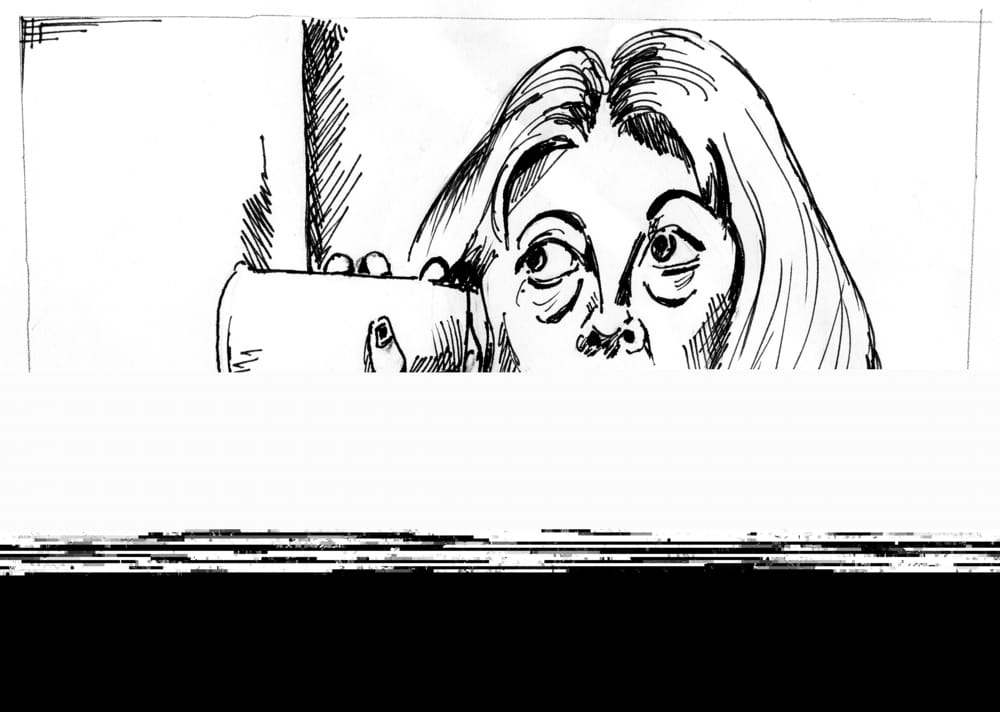Your internet history is up for grabs
You should be more worried about Theresa May’s new Investigatory Powers bill

Since Edward Snowden’s leaks in 2013, many have compared the British state to The Party from George Orwell’s prophetic Nineteen Eighty-Four. The Party seeks power; not to improve the lives of others, but entirely for its own interests. From the transceiving television sets used to monitor the citizens’ thoughtcrime (the act of socially unacceptable thoughts), there are many areas where Orwell’s fiction now overlaps with the reality of 21st century Britain.
With the introduction of the Investigatory Powers Bill, Theresa May aspires to become much more than Big Brother, and as a result our future has the potential to be far worse than Orwell’s dystopian novel ever predicted.
The extent to which we have submitted ourselves to the internet has left us exposed. If this bill succeeds, security forces will be given new powers to examine our digital footprint from the last twelve months. It will enshrine in law the bulk collection of personal metadata, the hacking into and bugging of computers, and will force companies to assist in bypassing encryption.
Any curiosity or “extremist” intrigue could be used against us without our knowledge and a simple spelling mistake when entering a URL could now make you look suspect. By only keeping your history up to the first forward slash of each website address, security forces lose the context of why someone is visiting a specific site. It could be entirely innocent.
As well as the far right, it’s often the “extreme” left that are most vulnerable to surveillance.
The people of Britain seem all too eager to sacrifice their right to privacy in order to protect themselves from the supposed threat of terrorism. Andrew Parker, the chief of MI5, has been vocal in the need for more powers to assist in fight against those who oppose our “great” nation, claiming that we are now facing the most serious threat of a terrorist attack since 9/11. Mention ISIS and al-Qaeda enough times and you can make the public believe anything. For the establishment, fear has always been their most powerful tool.
It would be naive to believe that these powers would be only used against those who wish us harm. Our government’s definition of a threat extends to anyone opposing British values: democracy, the rule of law, individual liberty, and mutual respect and tolerance of those with different faiths and beliefs. It’s a definition so loose that you could probably get a warrant for the Queen’s browsing history.
Personally, I think that the Conservative Party is a serious threat to our national security, our economic security and your family’s security. I could probably even find evidence to support this, but that doesn’t mean I should be allowed unbounded access to their personal data. While this argument might be reductive, it illustrates that threats are often entirely subjective, especially to those trying to cling to power.
As well as the far right, it’s often the “extreme” left that are most vulnerable to surveillance.
In the nineties, police conducted spying operations on a number of Labour politicians. They examined their political beliefs, the demonstrations they attended, and the people they met with.
While the new bill places restrictions on the surveillance of MPs (the Prime Minister must be consulted in all cases), it could easily be used to undermine activists and anyone the establishment disagrees with. So, it’s not ridiculous to think that these powers could one day be used by a ruling party to quell the opposition.
Obviously, if you’ve got nothing to hide, you’ve got nothing to fear. It’s only metadata that the government is asking for, right?
We’ve probably all looked at some kinky shit online that we’d rather not let other people know about. If you’re going to use that line, I look forward to the moment when an entire year’s worth of your browsing history is dumped on the internet; because all of the data that internet companies will be required keep on you is unlikely to stay safe for long. You only have to look back a few weeks to the TalkTalk hack and it’s obvious that it probably won’t just be the government looking through all the porn sites you’ve been on.
Then there’s the whole problem of encryption which makes the entire thing essentially useless against anyone actively hiding their activities. If you’re serious about causing harm or committing an act of terror it’s likely that you’re encrypting your communication. Making encryption illegal will do nothing to stop that.
I wish there was something we could do to stop this bill passing, but in reality we’re powerless. No one voted for the Conservatives in the hope they would pass a bill like this (if you did, then you’re an awful person).
You have to start questioning whether we really live in a democracy (the answer is no). I just hope that someone leaks all of Theresa May’s metadata, then she might begin to understand the true nature of what she is proposing.







